Harlem Race Riots
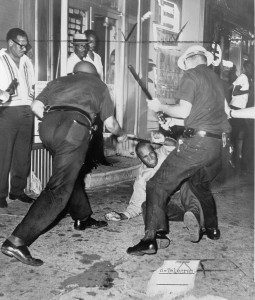 On this date – July 17, 1964 – race riots broke out in Harlem.
On this date – July 17, 1964 – race riots broke out in Harlem.
The night before, Lieutenant Thomas Gilligan of NYPD, shot and killed 15-year-old black male James Powell. In the past, Lt. Gilligan had been decorated for rescuing women and children from a fire, stopping a man from jumping off a roof, and saving a woman by using mouth-to-mouth resuscitation.
James Powell was a ninth-grader whom neighbors said had “grown a little wild” after his father’s recent death.
Lt. Gilligan heard breaking glass, investigated, and said he was confronted by the knife-wielding James Powell. In the process of disarming Powell, the police officer fired three shots – one of which hit and eventually killed the teenager.
Conflicting statements were given by witnesses to the confrontation.
A contingent of CORE (Congress of Racial Equality) protestors showed up at the scene of the shooting the next morning. They were met by fifty police officers armed with night sticks.
Rioting ensued – and continued to ensue over the next six days throughout various sections of New York City. These riots were the stimuli for riots that followed in July and August of 1964 in Philadelphia, Rochester, Chicago, Elizabeth, Paterson, and Jersey City.
It was estimated that more than 500 people were injured in the riots in New York City, one man died, and 465 men and women were arrested. Property damage fell somewhere between $500,000 and $1-million.
In September, a Grand Jury cleared Lt. Gilligan of any wrongdoing.
Trivia Question
The Phillies moved from Pittsburgh to Cincinnati to begin a rare five-game series ─ the fifth game was a makeup for a rainout back on April 29th. The Phillies had already won 5-of-8 against the Reds.
The Reds were riding a four-game winning streak that allowed them to move into third place, now just 3½ games out of first place.
It was Chris Short (7-5) versus Joey Jay (4-6) in the first game of the series.
 Joey Jay went 21-10 in 1961 and 21-14 in 1962, but he slumped to 7-18 in 1963. As a result, he was demoted to splitting time between starting and relieving. This was his seventh start of the season and his first appearance against the Phillies.
Joey Jay went 21-10 in 1961 and 21-14 in 1962, but he slumped to 7-18 in 1963. As a result, he was demoted to splitting time between starting and relieving. This was his seventh start of the season and his first appearance against the Phillies.
- Triva Question: Who was the first Little League player to play in the Major Leagues?
- Answer: Joey Jay
This was Chris Short’s 23rd start. He saved a game against the Reds on April 28th and lost a starting assignment against them on May 10th – although he gave up just one earned run on six hits through eight innings.
Costen Shockley, a 22-year-old first-baseman who was tearing the cover off the ball with the AAA Arkansas Travelers, was making his first start in the big leagues. He’d been called up to replace Roy Sievers on the roster.
Tony Taylor led off the top of the first by drawing a walk. Johnny Callison followed with his 14th home run of the season to give the Phillies a 2-0 lead ─ the two runs gave Callison 48 RBIs.
Chris Short and Joey Jay then tossed scoreless half-innings.
In the bottom of the second, Deron Johnson singled to center. One out later, Steve Boros hit his second home run of the season to tie the score 2-2.
Jay and Short then put up goose eggs through the bottom of the sixth.
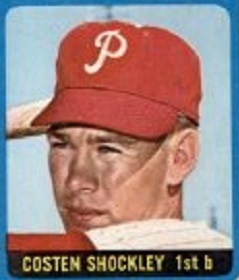 In the top of the seventh, Costen Shockley got his first big-league hit with a single to center. One out later, Bobby Wine singled to put runners on first and second.
In the top of the seventh, Costen Shockley got his first big-league hit with a single to center. One out later, Bobby Wine singled to put runners on first and second.
Chris Short tapped a ground ball to third that Steve Boros couldn’t handle, and the error loaded the bases with one out.
Tony Taylor lined a single to right and the runners all moved up a base. Shockley scored his first run to put the Phillies back on top 3-2. The bases remained loaded with still just one out.
Reds manager Fred Hutchinson replaced Joey Jay with lefty Billy McCool (2-0). This was McCool’s 18th relief appearance and his third against the Phillies. He’d given up just one run in four innings against the Phils.
Johnny Callison hit a sacrifice fly to make it 4-2 Phillies. It was Callison’s 49th RBI, tying him for the club lead with Richie Allen.
In the bottom of the seventh, Steve Boros singled with one out.
Gene Mauch replaced Short with Ed Roebuck (2-2) ─ Roebuck’s 30th outing.
Roebuck threw a wild pitch and Boros moved up to second.
Don Pavletich walked to put runners on first and second. Then Gordy Coleman, pinch-hitting for McCool, forced Pavletich at second for the second out. Boros advanced to third to put runners on first and third with two outs.
 Pete Rose singled and Boros scored to trim the Phillies lead to 4-3.
Pete Rose singled and Boros scored to trim the Phillies lead to 4-3.
That left a runner on first with two outs, and Gene Mauch replaced Roebuck with Jack Baldschun (3-3) ─ Baldschun’s 36th game and his third time out in the last three days.
Fred Hutchinson responded to the pitching change by sending Marty Keough up to bat for Tommy Harper.
Baldschun retired Keough on a foul fly to right to end the threat.
In the top of the eighth, Bill Henry (2-1) came in to pitch for the Reds.
Danny Cater greeted Henry with a single to right. With Costen Shockley at the plate, backup catcher Hal Smith tried to pick Cater off first. But he bounced the throw and Cater moved to second.
Cater then moved to third when Shockley grounded to short for the first out.
Gene Mauch called for the suicide squeeze.
With Cater breaking toward the plate on Henry’s delivery, Clay Dalrymple laid down a nice bunt and Cater scored to make it 5-3 Phillies.
In the bottom of the eighth, Vada Pinson hit his 13th home run of the year to cut the Phillies lead to 5-4.
Bill Henry retired the Phillies in the top of the ninth without event.
With two outs in the bottom of the ninth, Pete Rose hit a ground ball to first that should’ve ended the game, but Shockley booted it to give the Reds life.
Taking no chances, Mauch called Dennis Bennett (9-6) in from the bullpen to face the left-handed hitting Marty Keough. This was Bennett’s fourth relief outing. He pitched in relief three days earlier against the Pirates, giving up two runs on five hits in five innings. Otherwise, against the Reds, he was 2-1 as a starter.
Bennett needed just one out and he got it when Marty Keough popped out to short to end the ballgame. It was Bennett’s first save. Afterward, Bennett once again said his arm felt fine.
Chris Short (8-5) got the win and Joey Jay (4-7) took the loss.
Four Straight L’s for Giants
The Giants returned home to Candlestick Park in San Francisco to begin a four-game series with the Houston Colt 45s.
With the score tied 2-2 in the top of the seventh, the Colts played small-ball to out two runs on the scoreboard:
- Dave Roberts walked.
- Jerry Grote singled.
- Bob Bruce bunted. Pitcher Ron Herbel fielded the bunt but threw the ball into rightfield.
- Al Spangler hit a sacrifice fly.
 Houston added an insurance run in the top of the ninth to pull out a 5-2 victory.
Houston added an insurance run in the top of the ninth to pull out a 5-2 victory.
Bob Bruce (10-4) got the win and Hal Woodeshick picked up the save (#17).
The fourth straight loss dropped the Giants into second place – one game behind the Phillies.
(Excerpted from 1964 – The Year the Phillies Blew the Pennant by Barry Bowe.)
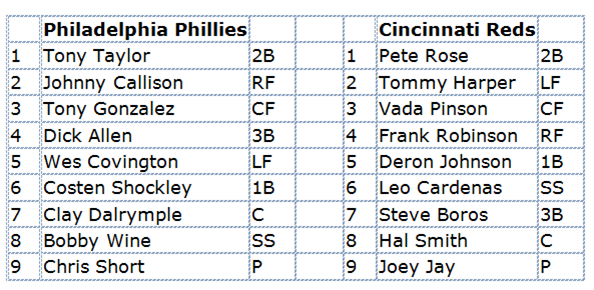

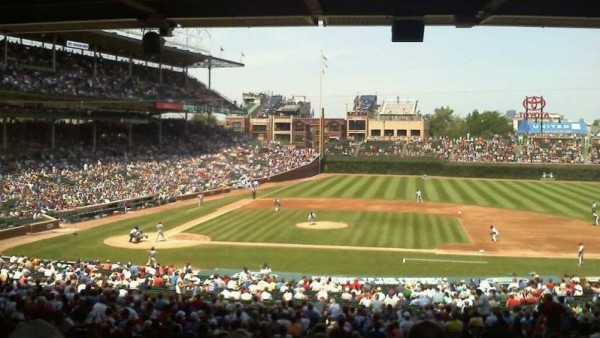
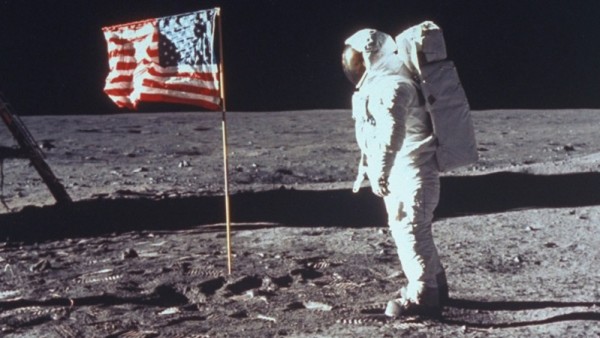
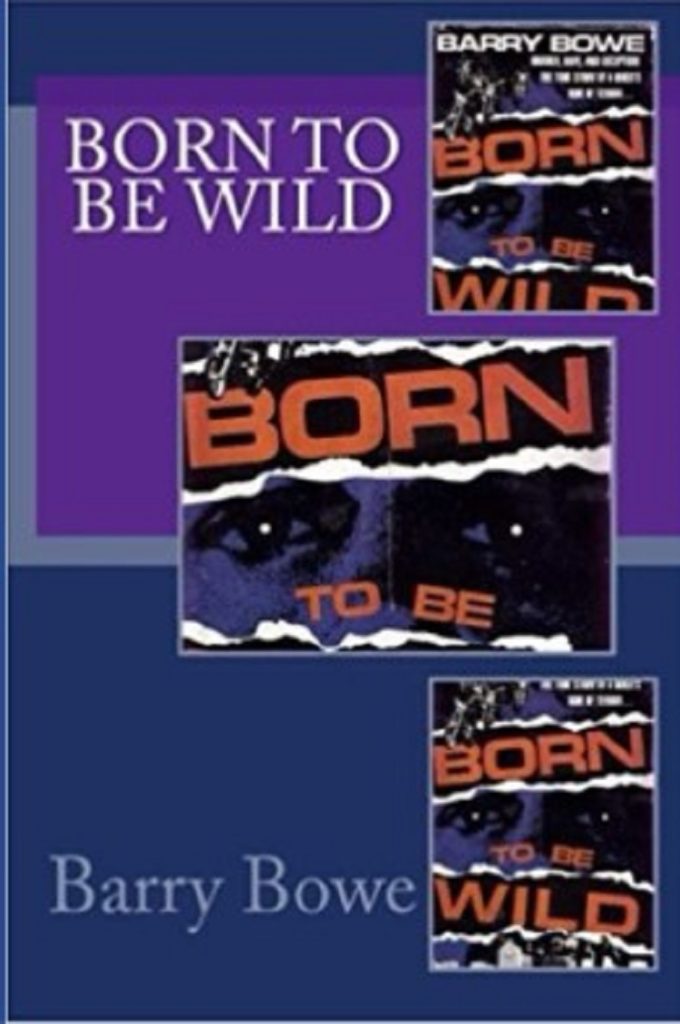
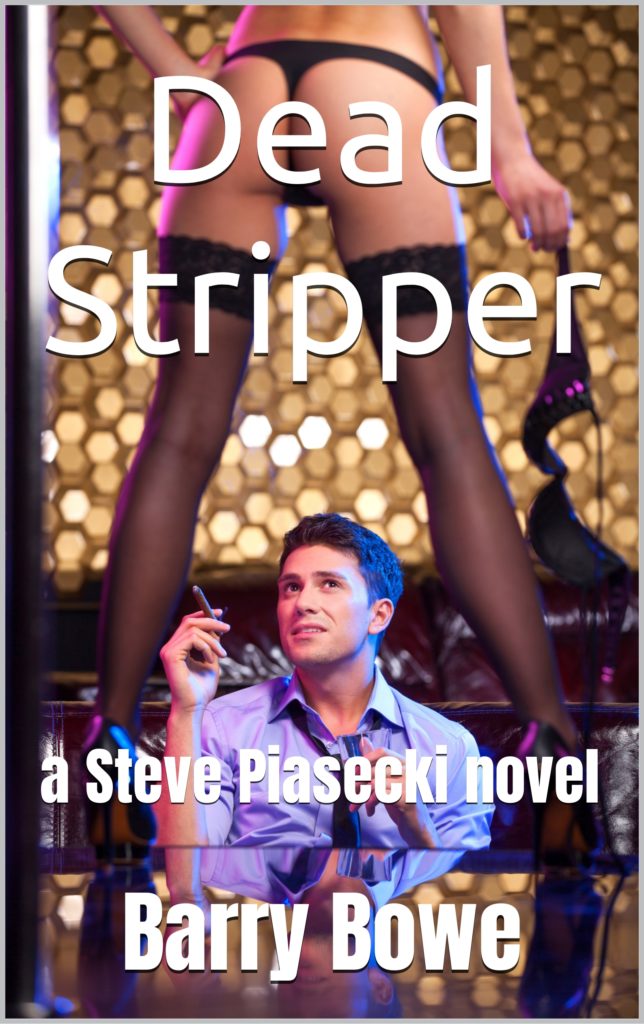
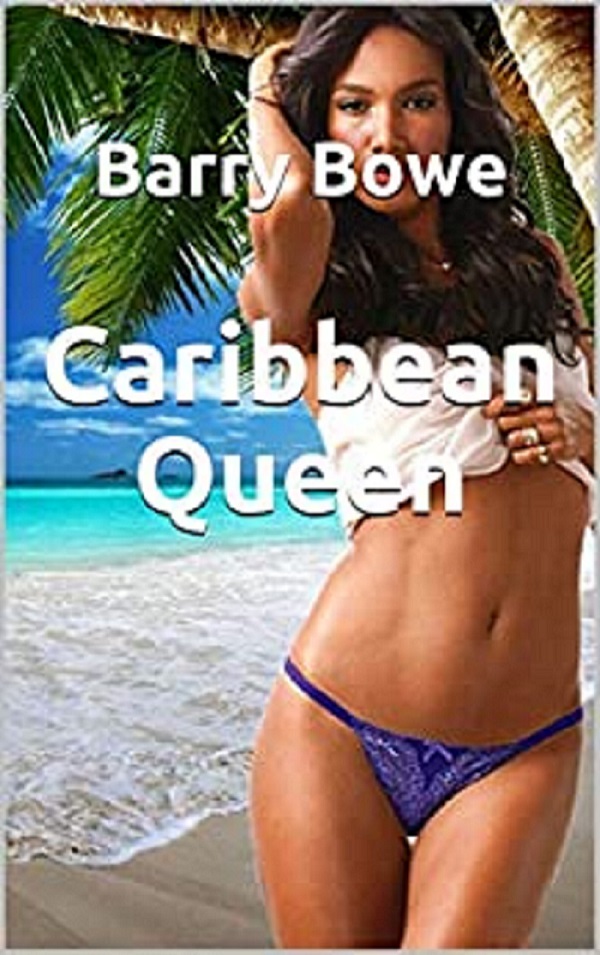
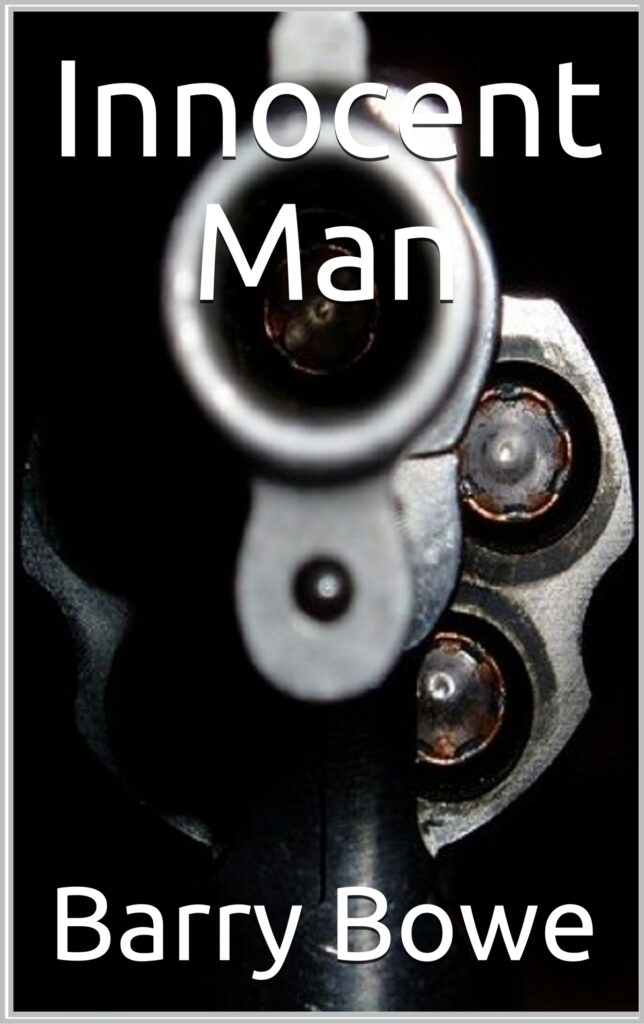
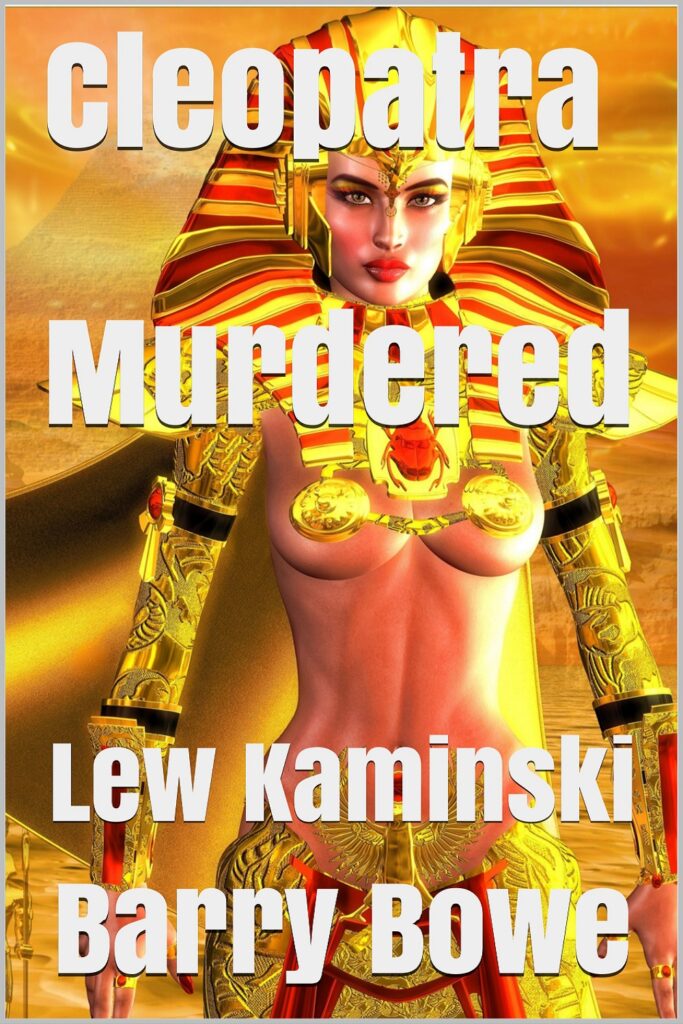
Comments
No Comments